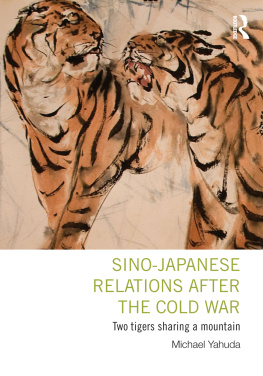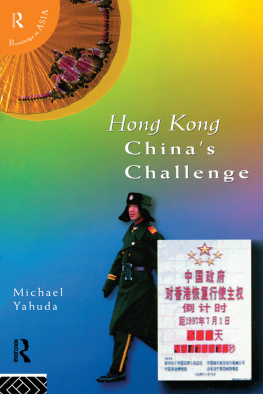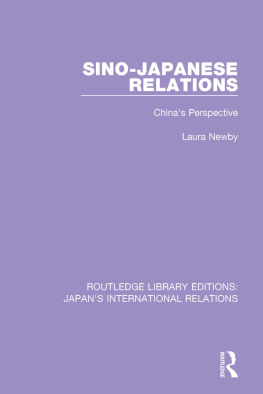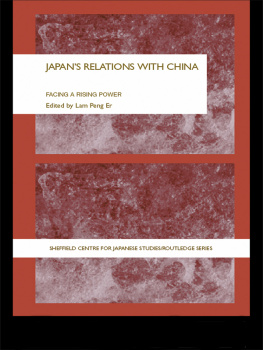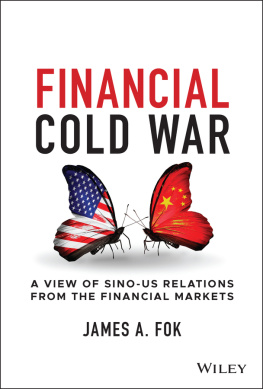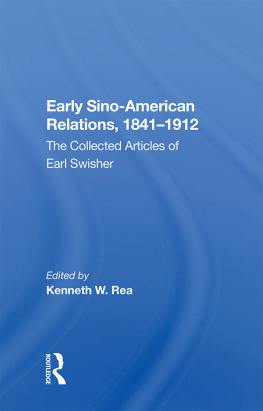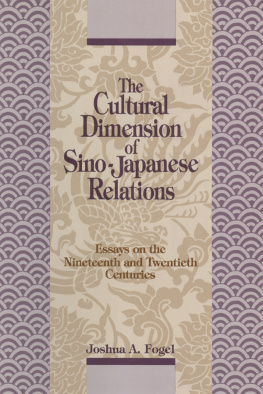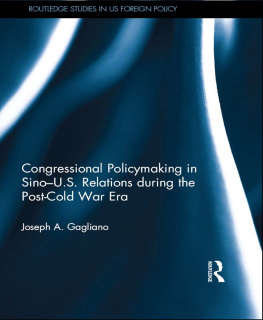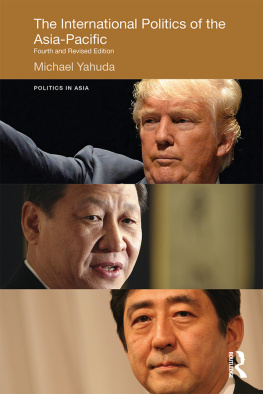Sino-Japanese Relations After the Cold War
Since the end of the Cold War China and Japan have faced each other as powers of relatively equal strength for the first time in their long history. As the two great powers of East Asia the way they both compete and cooperate with each other and the way they conduct their relations in the new era will play a big part in the evolution of the region as a whole.
This textbook will explore in detail the ways in which politics has shaped the thinking about history and identity in both China and Japan and explain the role political leadership in each country has played in shaping their respective nationalisms. Michael Yahuda traces the evolution of the relationship over the two decades against the framework of a rising China gaining ground on a stagnant Japan, and analyzes the politics of the economic interdependence between the two countries and their cooperation and competition in Southeast Asia and in its regional institutions.
Concluding with an examination of the complexities of their strategic relations and an evaluation of the potentialities for conflict and coexistence between the two countries, this is an essential text for students and scholars of Sino-Japanese and East Asian International Relations.
Michael Yahuda is Professor Emeritus of International Relations at the London School of Economics, UK, and visiting scholar at the Sigur Center for Asian Studies, The Elliot School, George Washington University, USA.
Michael Yahudas extraordinary contributions to understanding Asias foreign relations reach a new milestone in this clear and comprehensive treatment of the regions most important relationship. Detached and discerning analysis, adroit use of International Relations theories, and careful weighing of alternatives show a difficult path ahead, short of armed conflict.
Robert Sutter, George Washington University, USA
Michael Yahudas Sino-Japanese Relations After the Cold War: Two tigers sharing a mountain fills a persistent need for a solid textbook on Asias most important bilateral relationship. It is comprehensive in its scope, lucid in its conclusions, well balanced in its treatment of both history and new strategic realities, and always eminently readable.
Richard Bush, The Brookings Institution, USA
During the first two decades following the normalization of Sino-Japanese relations in the early 1970s, Japan and China managed to maintain amicable ties in spite of a relative lack of economic engagement and human exchanges. Since the early 1990s, however, the growing interdependence of the two countries has also been marked by underlying tensions and serious disputes as a long-term power shift from Japan to China occurs. Yahuda, a leading authority in the field, offers us a cogent and dispassionate analysis of the ways in which these two tigers can learn to share the same mountain.
Ryosei Kokubun, President, National Defense Academy of Japan
Focusing on China-Japan relations in the post-Cold War period, Michael Yahuda explains, with great skill, the historical, political, economic and strategic complexities of this most important East Asian bilateral relationship. In particular, he demonstrates how economic interdependence and a growing tripartite institutionalisation in Northeast Asia have thus far mitigated against conflict. Highly accessible, Yahudas insightful and balanced view offers us a refreshing antidote to the more alarmist interpretations of Sino-Japanese relations.
Caroline Rose, University of Leeds, Executive Director, White Rose
East Asia Centre, UK
Sino-Japanese Relations After the Cold War
Two tigers sharing a mountain
Michael Yahuda
First published 2014
by Routledge
2 Park Square, Milton Park, Abingdon, Oxon OX14 4RN
and by Routledge
711 Third Avenue, New York, NY 10017
Routledge is an imprint of the Taylor & Francis Group, an informa business
2014 Michael Yahuda
The right of Michael Yahuda to be identified as author of this work has been asserted by him in accordance with the Copyright, Designs and Patent Act 1988.
All rights reserved. No part of this book may be reprinted or reproduced or utilised in any form or by any electronic, mechanical, or other means, now known or hereafter invented, including photocopying and recording, or in any information storage or retrieval system, without permission in writing from the publishers.
Trademark notice: Product or corporate names may be trademarks or registered trademarks, and are used only for identification and explanation without intent to infringe.
British Library Cataloguing in Publication Data
A catalogue record for this book is available from the British Library
Library of Congress Cataloging in Publication Data
Yahuda, Michael B.
Sino-Japanese relations after the Cold War : two tigers sharing a mountain / Michael Yahuda.
pages cm.
Includes bibliographical references and index.
ISBN 978-0-415-84307-2 (hardback) -- ISBN 978-0-415-84308-9 (paperback) -- ISBN 978-0-203-74029-3 (ebook) 1. China--Foreign relations--Japan. 2. Japan--Foreign relations--China. 3. China--Foreign economic relations--Japan. 4. Japan--Foreign economic relations--China. 5. China--Foreign relations--1976- 6. Japan--Foreign relations--1989- I. Title.
DS740.5.J3Y25 2013
327.51052--dc23
2013005010
ISBN: 978-0-415-84307-2 (hbk)
ISBN: 978-0-415-84308-9 (pbk)
ISBN: 978-0-203-74029-3 (ebk)
Typeset in Sabon
by Taylor and Francis Books
To my Grandchildren
Rachael
Aisha
Omi
Emily
Hannah
Jacob
Nina
Zack
Eli
Contents
Research for this book first began in 2005, when I was fortunate to be awarded a years fellowship at the Woodrow Wilson International Center for Scholars in Washington DC. At that time it seemed as if Sino-Japanese relations were heading in a downwards spiral irretrievably towards military conflict and that my task was to explain this sorry state of affairs and how such conflict could be averted, perhaps through the good offices of the United States. However, with the breaking of the ice between them in August 2006, which also coincided with North Koreas first nuclear test, it became apparent that a more complex dynamic of relations was at play between China and Japan the two great powers of East Asia.
I then put my project on hold as I turned to other research activities including, amongst others, revising a textbook on the international politics of the Asia-Pacific. But I continued to follow developments in Sino-Japanese relations and it gradually became apparent to me that despite the enormity of their differences, heightened by their proximity, the potentiality for conflict between them was less than I had supposed. Although military clashes between the two great powers of East Asia are entirely possible, especially in the East China Sea, with the potential for escalation, neither seeks open warfare and it seems that longer-term peaceful coexistence between China and Japan is the more likely outcome. I then returned once again to the task of writing this book.
In addition to drawing on the usual sources for researching a book of this kind, such as formal documents, statements by leaders and governments, interviews by leaders and other people of influence, scholarly journals, books, newspapers and so on, I have been privileged down the years beginning in the late 1970s and continuing every two years on average to have access to government officials and notable scholars in both countries. Discussions and interviews with them have deepened my understanding and enriched my knowledge in ways that extend far beyond the written word. Out of respect for their desire not to be formally named and in order to encourage them to continue to talk with me in confidence I have kept their names confidential.


